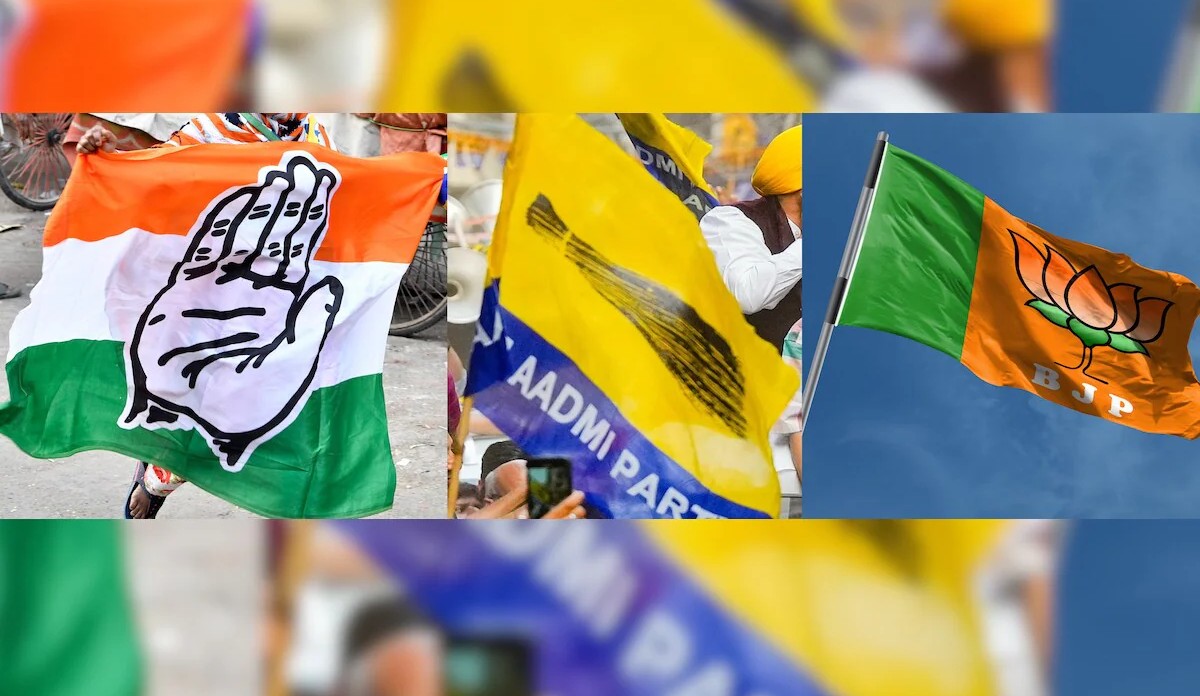Who Funds India’s Major Political Parties? ADR Report Reveals Top Donors for FY 2023-24
Politics Politics of IndiaPosted by NewAdmin on 2025-04-07 08:53:53 |
Share: Facebook | Twitter | Whatsapp | Linkedin Visits: 54

A recent report by the Association for Democratic Reforms (ADR) has shed light on the financial backbone of India’s national political parties, revealing that the Bharatiya Janata Party (BJP) dominated the donation landscape in FY 2023-24, receiving over ₹2,243 crore — more than six times the combined donations received by the Congress, Aam Aadmi Party (AAP), CPI(M), and NPEP.
The BJP declared receiving 8,358 donations, amounting to ₹2,243.95 crore. In contrast, the Indian National Congress received ₹281.48 crore from 1,994 donations, positioning itself as the second-highest recipient. The Aam Aadmi Party, though a key political player, lagged significantly behind in terms of donation volume.
Corporate Sector: The Dominant Contributor
The lion’s share of political funding came from the corporate and business sector, which contributed ₹2,262.5 crore, accounting for 88.9% of the total donations received by national parties.
- The BJP was the primary beneficiary of corporate generosity, securing ₹2,064.58 crore through 3,478 corporate donations.
- Additionally, the party received ₹169.13 crore from 4,628 individual donors.
- The Congress, in comparison, garnered ₹190.3 crore from the corporate sector and ₹90.90 crore from individual donors.
At ₹2,064.5 crore, BJP’s corporate donations outstripped the combined corporate contributions to all other national parties by over nine times.
Top 10 Donors to National Parties in FY 2023-24
Prudent Electoral Trust
Total: ₹880 crore
BJP: ₹723.6 crore
Congress: ₹156.4 crore
Triumph Electoral Trust
BJP: ₹127.5 crore
Derive Investments
BJP: ₹50 crore
Congress: ₹3.2 crore
Acme Solar Energy Pvt. Ltd.
₹51 crore (unspecified split)
Rungta Sons Private Limited
₹50 crore
These figures underscore the significant influence of electoral trusts and business entities in shaping India’s political financing. Prudent Electoral Trust alone accounted for nearly a third of BJP’s declared funding and over half of Congress’s total donations.
Implications and Observations
This data highlights a growing corporatisation of political funding in India. The disproportionate tilt towards the ruling party raises concerns around transparency, accountability, and potential influence in policy-making. The lack of clarity around donations below ₹20,000 and the opacity surrounding electoral bonds further complicate public scrutiny.
As political finance continues to be a key factor in electoral outcomes, civil society and watchdog bodies like ADR continue to demand reforms to ensure cleaner, more transparent funding mechanisms for all parties.
Search
Categories
Recent News
- Andhra Pradesh's Zonal System: A Hurdle in District Formation
- Hyderabad's Traffic Wings Get a Boost with IPS Officer Reshuffle
- Uncovering the Golden Scheme: I-T Raids Expose Bullion Trading Secrets
- Big Tech's Child Safety Crisis: Australia Sounds the Alarm
- Blue Cloud Softech's $150M Edge AI Chip Venture
- Nuclear Diplomacy Revived: US and Iran Resume Talks
- Curiosity Illuminates Mars: Unveiling the Red Planet's Night Secrets
- Telangana's Cybercrime Conclave: AI Takes Centre Stage
Popular News
- Navigating IPO Market Dynamics Amid Volatility and Regulatory Changes
- Massive Worldwide Microsoft Outage Disrupts Multiple Sectors
- Panjapur Bus Stand to Reshape TNSTC Routes
- తెలుగుదేశం పార్టీ - పేదరికాన్ని నిర్మూలించడంలో వాగ్దానం
- Universities Embrace Remote Learning Technologies Amidst Ongoing Pandemic